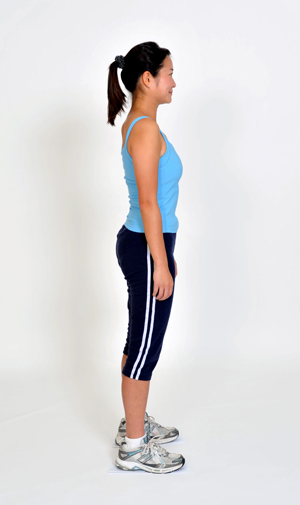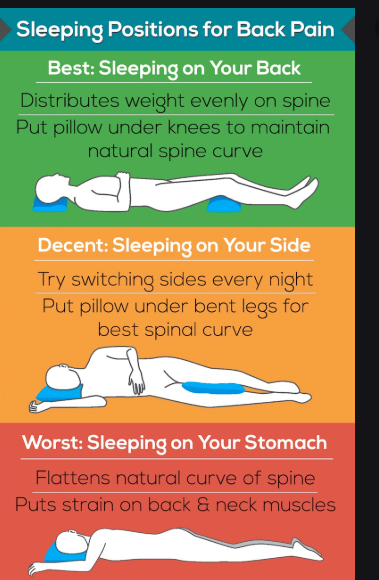SHARES

“My teachers always say that I’m a very good student but way too shy and lacking in self confidence. I noticed myself slouching forward after long hours of reading and writing. This not only gives me aches in my shoulders and back, more importantly, I don’t look good when I walk.” Cindy, 17, who loves literature, is troubled by her poor posture.
But, did you know bad posture can affect you in more ways than one?
Posture – Spine Position is key
Good posture can be easily understood as standing and sitting straight while bad posture usually means slouching. The key is our spine position. Many core muscles, and nerves (including the nerves to our internal organs) are closely related and attached to our spine.
We can imagine our spine as the main highway in which everything flows. A poor posture is like a damaged highway that hinders the traffic. Likewise, it is not surprising that people in Ancient times realise the importance of good posture in maintaining health and wellbeing. For instance, both yoga and “qi-gong” (气功) pay great attention to resting and moving postures so as to mobilise and maintain good flow of body chakra and “qi” (气) respectively. In Chinese Medicine, the stagnation of “qi” gives rise to bodily aches in that specific area. As we can see, good posture can improve our health and make us feel better.
How Bad Posture Can Affect You – 3 Risks
1. Weaker muscles and spine
When you slouch, continuing the bad posture for a long time, you can shorten muscles that are flexed and lengthen muscles that are stretched. Both shortened and lengthened core muscles are weaker, and provide less support to your spine. This puts you at higher risk of injuring your spine during activity. Also, your spine will be more prone to malalignment. As a result, you overwork groups of muscles that ache, for example, a lower back pain or neck pain etc. In the long run, without good core muscle support, the extra stress will wear off your joints (osteoarthritis of the spine), causing chronic pain.
2. Poor digestive and urinary systems
People with poor posture often find themselves having trouble with poor appetite, indigestion, heartburn or stomach acid reflux, constipation, diarrhoea, urinary urgency and incontinence.
When we slouch, our abdominal pressure increases and this compresses our stomach and bladder. Therefore, our stomach feels bloated and we get burning pain in our chest (from the stomach acid that is being forced out and up). It is also hard to hold urine with a smaller bladder and we can leak urine when coughing or sneezing hard. Bad posture is stressful for the body too. Stress hormone causes our gut to move slower, resulting in constipation and poor digestion. We can get diarrhoea from undigested food too.
3. Mental stress and bad mood
Besides, when we slouch, we tend not to rest and relax our minds. We can have thoughts that pop up and repeat itself. This makes us look withdrawn and preoccupied. In medieval times, physician had similar observation that people slouch and lower their head like a curled worm (“vermis”) so as to think through and process memory pieces (“vis cogitatio”). If the process prolongs, the person starts frowning and feeling sick.
In the context of Chinese Medicine, a person who slouch is trapped in his/her thought because the “qi” cannot reach the “liver”. The “liver” helps relieve repressed thoughts, desire, anger, prejudice and disgust. He or she sits still, moves less and finds it hard to breathe in deeply. In fact, the abdominal pressure pushes on the diaphragm and prevent us from inhaling fully. Lack of oxygen in blood stresses our body and tires the brain out.
In this context, it is not surprising that people with bad posture shares a lot of similar symptoms like body ache, indigestion, constipation, urinary urgency, etc with those with chronic stress, anxiety, and depression.
Tips for Better Posture
1. While sitting and driving:
Working long hours in front of office desk or in a driver’s seat with poor posture can make you miserable and sick. Instead, sit with your feet touching the ground and uncrossed. Your back should be straight, relax the shoulders, forearms and thigh in parallel to floor. Sit with knees at same height or lower than the hips and with a small gap from the chair. Keep your back against the chair and support the lower back region with a cushion if necessary. Best to take a short break every hour to avoid prolonged periods of sitting.
At the driver’s wheel, sit forward or close enough to your steering to avoid slouching. You should not bend your upper body or neck forward to reach your steering or desk equipment. It is important to make sure the seat is flat and avoid sitting with wallet in your back pocket. Fix your car cushion if it bulges or loses volume on one side. These make sure your spine doesn’t get twisted. Incline your car seat only slightly, it should also provide firm support.
Correct Driving Posture (source: MedicalNewsToday, Osteopathic Clinic-Middle Park)
2. While standing or walking:
A simple trick is to keep your shoulders pulled backward and your tummy tucked in. Rest your arms by your side and avoid crossing them in front of your chest.
3. While lying:
If you sleep on your side, get a firmer pillow to keep your neck straight. Place a pillow between your knees to avoid twisting your spine.
If you sleep on your back, get a softer pillow to avoid too much bending of your neck. Use a pillow under your knees to rest your back.
Conclusion
Bad posture can affect a person negatively. Its impact extend far beyond physical muscle aches and soreness. You will feel a little bit more down, demotivated, trapped, tired and anxious. Sometimes, you can have bodily symptoms like constipation and indigestion which form a vicious cycle of making you feel even more troubled and anxious. Get help today from your chiropractor and doctor to improve your posture.
Find a Chiropractor or GP/Family Doctor in Malaysia, on GetDoc
Find a Chiropractor or GP/Family Doctor in Singapore, on GetDoc
References:
1. Ruben C. 10 ways poor posture can harm your health [Internet]. US News and World Report L.P. 2019. [Available fromI: https://health.usnews.com/wellness/slideshows/10-ways-poor-posture-can-harm-your-health; last updated on 2016 Sept; accessed on 2019 Jul 12]
2. Guide to good posture [MedlinePlus]. US Nationak Library of Medicine. 2019. [Available from: https://medlineplus.gov/guidetogoodposture.html; last updated on 2019 Jan 28; accessed on 2019 Jul 12]
by Chang Xian
View all articles by Chang Xian.












